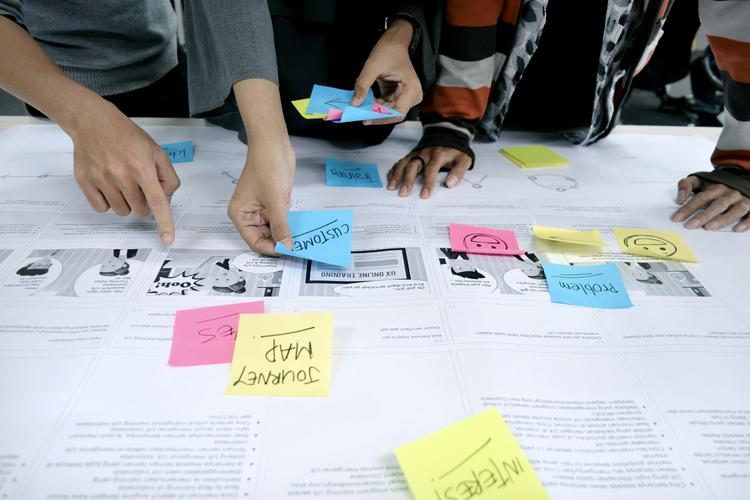Blog
coaching
Understanding Cognitive Reappraisal: A Powerful Tool for Emotional Eaters
Introduction
Emotional eating is a common struggle that many face, often leaving them feeling out of control and frustrated. But what if you could change not just the behavior, but the way your brain interprets emotional triggers? This is where cognitive reappraisal comes into play — a transformative technique used in neurocoaching to help emotional eaters reclaim control over their relationship with food.
What is Cognitive Reappraisal?
Cognitive reappraisal is the process of intentionally changi…
5 Neurocoaching Strategies to Enhance Executive Function in Overweight Individuals
Introduction
Neurocoaching offers more than motivation—it delivers brain-based strategies that enhance executive function, helping overweight clients overcome obstacles like impulsivity and emotional eating. Here are five effective neurocoaching techniques you can start using today.
- Mindfulness Training
Mindfulness enhances attention control and emotional regulation by increasing awareness of impulses before acting on them. Daily mindfulness exercises help clients “pause” and choose healthier …
The Science Behind Neurocoaching and Executive Function in Overweight Clients
Introduction
Weight loss programs often fail because they overlook the neurological underpinnings of behavior. Executive function—crucial for self-regulation—is frequently compromised in overweight individuals. Neurocoaching offers a cutting-edge, brain-based approach to overcome these challenges by harnessing neuroplasticity.
Understanding Executive Function and the Brain
Executive function is governed largely by the prefrontal cortex, responsible for:
- Decision-making
- Inhibiting impulses
- Wo…
How Enhancing Executive Function Can Transform Weight Management
Introduction
Struggling to maintain healthy habits despite good intentions? You’re not alone. Many people battling overweight challenges find that traditional diet and exercise advice alone isn’t enough. The missing piece? Executive function—the brain’s ability to plan, regulate impulses, and manage emotions. Enhancing executive function through neurocoaching offers a breakthrough path to lasting change.
What Is Executive Function?
Executive functions are cognitive processes that allow us to:
-
…
Rewiring the Mindset: Neurocoaching for Weight Loss in High-Stress Environments
Introduction:
Weight gain in socioeconomically disadvantaged populations is rarely just about food. It’s about stress. Survival. Emotional overwhelm. And when the mind is in “fight or flight,” making healthy choices feels impossible.
Neurocoaching helps interrupt this cycle—and rebuilds control from within.
The Mindset Trap: “Why Try?”
Many clients living in poverty or financial distress hold deep beliefs like:
- “I’ll always be overweight.”
- “Healthy food isn’t for people like me.”
- “I can’t…
The Power of MicroHabits: How Neurocoaching Helps People Lose Weight One Thought at a Time
Introduction:
In many low-income communities, weight loss programs don’t fail because people don’t care—they fail because they ask too much, too fast. What if instead of overhauling everything, we focused on changing one tiny thought or habit at a time?
That’s the heart of Neurocoaching.
What Are MicroHabits?
Micro-habits are small, manageable actions that are easy to repeat. Think:
- Drinking one glass of water upon waking
- Pausing to take 3 deep breaths before eating
- Swapping one fried mea…
Why Traditional Weight Loss Fails in Disadvantaged Communities — and What Works Instead
Introduction:
Every year, millions of people try to lose weight using traditional diets and exercise plans. But for many living in socioeconomically disadvantaged communities, these efforts don’t just fall short—they feel impossible. Limited access to fresh food, high stress, and long work hours make conventional approaches inaccessible.
So, what if the key to sustainable weight loss isn’t just about food or exercise—but about how the brain works?
That’s where Neurocoaching comes in.
What Is N…
Designing Effective Coaching Plans to Calm the Amygdala and Overcome Food Anxiety
Introduction:
No two clients are alike. While understanding the neuroscience behind food anxiety is critical, the real magic happens when you tailor coaching plans to each individual’s unique needs.
Step 1: Assess Client’s Relationship with Food and Anxiety Triggers
Start with open, empathetic conversations to uncover specific food triggers, emotional patterns, and physiological symptoms your client experiences.
Step 2: Integrate Breathwork and Mindfulness Techniques
Choose breathwork or mindfuln…
5 Proven Coaching Strategies to Reduce Amygdala Hyperactivation in Clients with Food Anxiety
Introduction:
Once you understand that food anxiety stems from amygdala hyperactivation, the next step is knowing how to help clients calm this brain response. Here are five evidence-based coaching strategies to incorporate into your practice.
- Breathwork: The Fastest Way to Reset the Nervous System
Encourage clients to practice controlled breathing techniques such as the 4-7-8 method. Slow, deep breaths activate the parasympathetic nervous system, signaling the amygdala that the environment is…
How Amygdala Hyperactivation Fuels Food Anxiety — And What Coaches Can Do About It
Introduction:
Food anxiety is a growing concern for many people, but it’s often misunderstood. At the root of this anxiety is the amygdala — the brain’s fear center. When the amygdala becomes hyperactivated, it triggers intense emotional responses and fight-or-flight reactions that make food feel threatening rather than nourishing.
What is Amygdala Hyperactivation?
The amygdala is a small, almond-shaped cluster of neurons deep in the brain responsible for processing emotions, especially fear and …
Blog
coaching
Understanding Cognitive Reappraisal: A Powerful Tool for Emotional Eaters
Introduction
Emotional eating is a common struggle that many face, often leaving them feeling out of control and frustrated. But what if you could change not just the behavior, but the way your brain interprets emotional triggers? This is where cognitive reappraisal comes into play — a transformative technique used in neurocoaching to help emotional eaters reclaim control over their relationship with food.
What is Cognitive Reappraisal?
Cognitive reappraisal is the process of intentionally changi…
5 Neurocoaching Strategies to Enhance Executive Function in Overweight Individuals
Introduction
Neurocoaching offers more than motivation—it delivers brain-based strategies that enhance executive function, helping overweight clients overcome obstacles like impulsivity and emotional eating. Here are five effective neurocoaching techniques you can start using today.
- Mindfulness Training
Mindfulness enhances attention control and emotional regulation by increasing awareness of impulses before acting on them. Daily mindfulness exercises help clients “pause” and choose healthier …
The Science Behind Neurocoaching and Executive Function in Overweight Clients
Introduction
Weight loss programs often fail because they overlook the neurological underpinnings of behavior. Executive function—crucial for self-regulation—is frequently compromised in overweight individuals. Neurocoaching offers a cutting-edge, brain-based approach to overcome these challenges by harnessing neuroplasticity.
Understanding Executive Function and the Brain
Executive function is governed largely by the prefrontal cortex, responsible for:
- Decision-making
- Inhibiting impulses
- Wo…
How Enhancing Executive Function Can Transform Weight Management
Introduction
Struggling to maintain healthy habits despite good intentions? You’re not alone. Many people battling overweight challenges find that traditional diet and exercise advice alone isn’t enough. The missing piece? Executive function—the brain’s ability to plan, regulate impulses, and manage emotions. Enhancing executive function through neurocoaching offers a breakthrough path to lasting change.
What Is Executive Function?
Executive functions are cognitive processes that allow us to:
-
…
Rewiring the Mindset: Neurocoaching for Weight Loss in High-Stress Environments
Introduction:
Weight gain in socioeconomically disadvantaged populations is rarely just about food. It’s about stress. Survival. Emotional overwhelm. And when the mind is in “fight or flight,” making healthy choices feels impossible.
Neurocoaching helps interrupt this cycle—and rebuilds control from within.
The Mindset Trap: “Why Try?”
Many clients living in poverty or financial distress hold deep beliefs like:
- “I’ll always be overweight.”
- “Healthy food isn’t for people like me.”
- “I can’t…
The Power of MicroHabits: How Neurocoaching Helps People Lose Weight One Thought at a Time
Introduction:
In many low-income communities, weight loss programs don’t fail because people don’t care—they fail because they ask too much, too fast. What if instead of overhauling everything, we focused on changing one tiny thought or habit at a time?
That’s the heart of Neurocoaching.
What Are MicroHabits?
Micro-habits are small, manageable actions that are easy to repeat. Think:
- Drinking one glass of water upon waking
- Pausing to take 3 deep breaths before eating
- Swapping one fried mea…
Why Traditional Weight Loss Fails in Disadvantaged Communities — and What Works Instead
Introduction:
Every year, millions of people try to lose weight using traditional diets and exercise plans. But for many living in socioeconomically disadvantaged communities, these efforts don’t just fall short—they feel impossible. Limited access to fresh food, high stress, and long work hours make conventional approaches inaccessible.
So, what if the key to sustainable weight loss isn’t just about food or exercise—but about how the brain works?
That’s where Neurocoaching comes in.
What Is N…
Designing Effective Coaching Plans to Calm the Amygdala and Overcome Food Anxiety
Introduction:
No two clients are alike. While understanding the neuroscience behind food anxiety is critical, the real magic happens when you tailor coaching plans to each individual’s unique needs.
Step 1: Assess Client’s Relationship with Food and Anxiety Triggers
Start with open, empathetic conversations to uncover specific food triggers, emotional patterns, and physiological symptoms your client experiences.
Step 2: Integrate Breathwork and Mindfulness Techniques
Choose breathwork or mindfuln…
5 Proven Coaching Strategies to Reduce Amygdala Hyperactivation in Clients with Food Anxiety
Introduction:
Once you understand that food anxiety stems from amygdala hyperactivation, the next step is knowing how to help clients calm this brain response. Here are five evidence-based coaching strategies to incorporate into your practice.
- Breathwork: The Fastest Way to Reset the Nervous System
Encourage clients to practice controlled breathing techniques such as the 4-7-8 method. Slow, deep breaths activate the parasympathetic nervous system, signaling the amygdala that the environment is…
How Amygdala Hyperactivation Fuels Food Anxiety — And What Coaches Can Do About It
Introduction:
Food anxiety is a growing concern for many people, but it’s often misunderstood. At the root of this anxiety is the amygdala — the brain’s fear center. When the amygdala becomes hyperactivated, it triggers intense emotional responses and fight-or-flight reactions that make food feel threatening rather than nourishing.
What is Amygdala Hyperactivation?
The amygdala is a small, almond-shaped cluster of neurons deep in the brain responsible for processing emotions, especially fear and …









